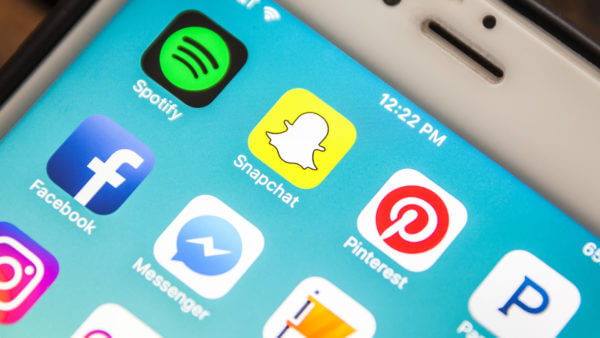Social Shorts: Snapchat reach campaigns, Facebook attribution change, TikTok downloads can continue

The social media marketing week in review: A round up of news and announcements you may have missed.

Snapchat pitches Platform Burst reach option for advertisers
Snapchat is floating a new advertising offering called Platform Burst. The idea is to guarantee that “campaigns will reach at least 40% of their target audience 15 times” over a three or five day period, according to Digiday. Platform Burst campaigns can encompass different ad formats across the platform and reportedly cost around $127,000.
Why we care. This option could appeal to brands looking for high frequency reach in the Q4 shopping season at a set cost. Snapchat also offers Snap Select, which gives advertisers the option to buy un-skippable, six-second Commercials on shows in Snapchat Discover.at a fixed cost. While Snapchat has been seemingly overshadowed by TikTok’s rise and political drama, Snapchat has continued to build out TV-like mobile video advertising offerings.
Facebook to ditch 28-day attribution window
Starting October 12, Facebook will default advertisers’ attribution windows to 7-day click. It will be phasing out the 28-day attribution window. The reason? Browser privacy crackdowns on cross-site and cross-device tracking are essentially making longer attribution windows untenable.
Update: Facebook said it is shelving this attribution change and continue to make the 28-day attribution window the default — for now.
Why we care. This is the latest of many changes advertisers will have to deal with as a result of increased privacy measures by browsers. Before October 12, export any historical 28-day conversion data and update any automated rules that rely on it. If you’re using the 28-day window, the “comparing windows” feature in Ads Manager will give you a sense of how a shift to the 7-day window may change the number of conversions you’ll see reported.
Instagram and Facebook Messenger merger
In March 2019, Facebook CEO Mark Zuckerberg announced plans to merge messaging across Facebook Messenger, Instagram and WhatsApp and encrypt messages sent among the apps.In a first step, the company has now merged Facebook Messenger and Instagram, replacing the old Instagram Direct service with Messenger.
“We’re connecting the Messenger and Instagram experience to bring some of the best Messenger features to Instagram,” Facebook lead Adam Mosseri and Stan Chudnovsky, the heads of Instagram, said in a statement. Users must consent to have the services merged.The WhatsApp integration is still a work in progress and remains separate.
Why we care. The move comes amid antitrust scrutiny, and many questioned whether a motivating factor of integrating the technologies to bolster the argument against breaking them up. As users spend more time in messaging and arguably less time in feeds, the integration helps maintain attention share and more attention means more ad view opportunities.
TikTok downloads can continue. For now.
A U.S. judge blocked the Trump administration’s order for Apple and Google to start banning TikTok from their app stores Sunday. Parent company ByteDance is still in talks with Walmart and Oracle to take ownership stakes in a new entity that would be called TikTok Global and oversee the U.S. operations.
Why we care. TikTok’s political headaches may actually be helping keep it at the top of the app download charts — it was in fourth place among free apps in the Apple App store Sunday and yesterday. Yet, the uncertainty of the app’s fate has made it hard for advertisers to bank on it for Q4 holiday campaigns and its younger user base can be targeted elsewhere such as Snapchat. Facebook’s TikTok answer, Instagram Reels, is also aiming to pick up budgets previously destined for TikTok.
Facebook sues browser extension makers for data scraping
Facebook filed suit against two companies it says used browser extensions to scrape and sell user data from Facebook, Instagram, Twitter, YouTube, Pinterest, LinkedIn and Amazon. When installed, the Chrome browser extensions, “UpVoice” and “Ads Feed,” pulled down the user’s name, user ID, gender, date of birth, relationship status, location information and other account-related data. The companies appear to be run by the same people.
Why we care. The extensions didn’t have big install bases, just 5,000 and 10,000 installs, according to ZDNet, but in addition to user data, the extensions also scraped “advertisements and advertising metrics (name of the advertiser, image and text of the advertisement, and user interaction and reaction metrics), and user Ad Preferences (user advertisement interest information),” ZDNet reported. Buyer beware who you’re funding: The data was repackaged and sold as marketing intelligence.


